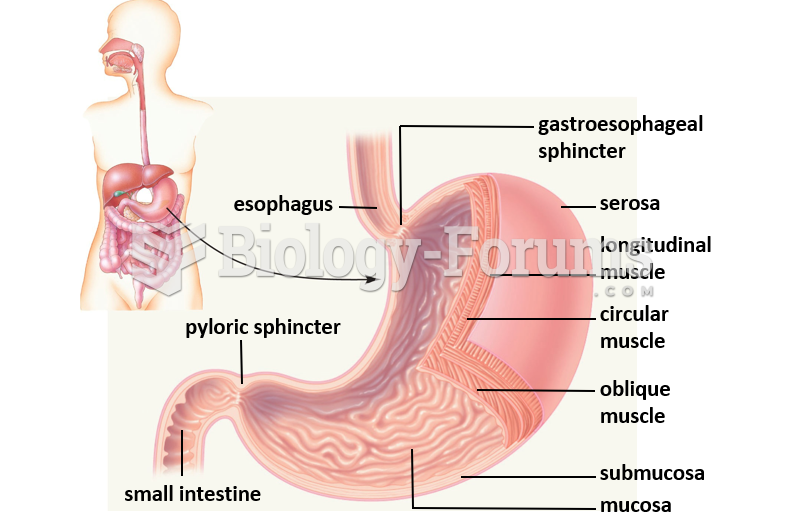|
|
|
About 100 new prescription or over-the-counter drugs come into the U.S. market every year.
Interferon was scarce and expensive until 1980, when the interferon gene was inserted into bacteria using recombinant DNA technology, allowing for mass cultivation and purification from bacterial cultures.
In 1864, the first barbiturate (barbituric acid) was synthesized.
One way to reduce acid reflux is to lose two or three pounds. Most people lose weight in the belly area first when they increase exercise, meaning that heartburn can be reduced quickly by this method.
Hip fractures are the most serious consequences of osteoporosis. The incidence of hip fractures increases with each decade among patients in their 60s to patients in their 90s for both women and men of all populations. Men and women older than 80 years of age show the highest incidence of hip fractures.
 Illustration showing how the primary breast tumor metastasized through the lymphatic and blood vesse
Illustration showing how the primary breast tumor metastasized through the lymphatic and blood vesse
 Hiatal hernia. (a) The hernia occurs when the stomach protrudes through the diaphragm and into the t
Hiatal hernia. (a) The hernia occurs when the stomach protrudes through the diaphragm and into the t





